‘I got the shock of my life’: when the NSW Governor was told she was osteopenic, she took action
NSW Governor Margaret Beazley was thrown when the results of a general health exam indicated she has a condition that can be a prelude to osteoporosis.
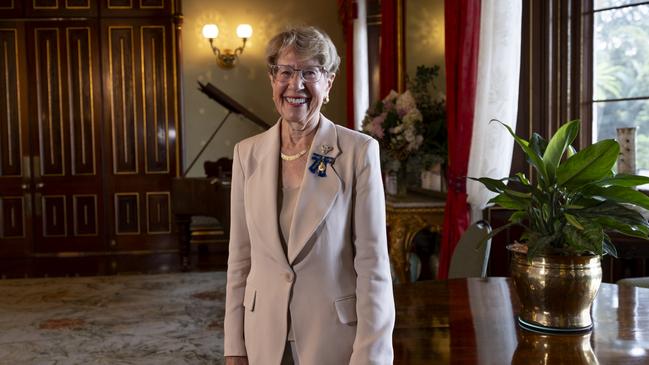
Rain has started to fall over Sydney Harbour on a particularly humid morning at the tail end of summer. The downpour ushers visitors to the grounds of NSW’s Government House onto a large patio where they stop and sit and` take in the view of the garden, overlooking one of the world’s most famous and picturesque harbours.
They don’t mind the brief interruption. Many plan on spending the day exploring the city by foot. While waiting out the rain, they are spontaneously greeted by Her Excellency the Honourable Margaret Beazley AC KC, the 39th Governor of NSW.
She asks about their day, where they’re from, and she tells them which parts of the house and gardens are her favourites to explore. This is the governor’s official working residence where she has lived, alongside her husband, Dennis Wilson, since 2019 when she was sworn in. The governor is herself an avid walker.
“I’ve always walked a lot,” she says. “I find walking fantastic for a whole lot of reasons. For me, it’s a mind-clearing thing, in many ways. Before this position I lived just on the other side of the bridge, on the north side. So, I used to walk to work three or four times a week.
“I used to joke, if I had a speech coming up, it’d take one walk across the bridge to try to get the idea for the speech. If I had a judgment that just wasn’t landing for me, it’d take a day to walk across the bridge to clear that, and then it would take me at least two days to deal with the difficult people in my life.”
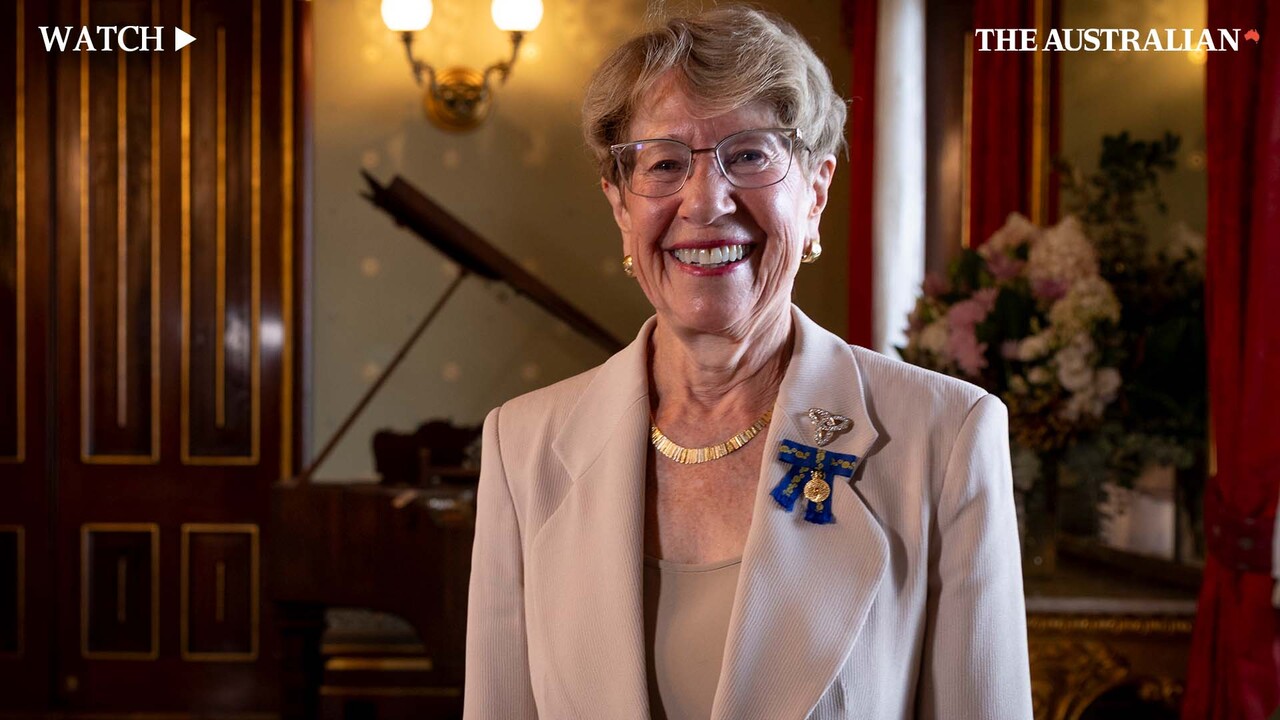
Governor Beazley has always been active and says she has been blessed with good health throughout her life, and undergoes regular medical checks to ensure she is able to keep up with her busy schedule, after her term was extended by two years in 2024. So, she was thrown when the results of a general health exam recently indicated she is osteopenic – a condition that can be a prelude to osteoporosis.
Throughout our lives, our bodies constantly create new bones while simultaneously absorbing old bone minerals. Osteopenia and then osteoporosis happen when our bodies cannot replace that bone as quickly as it is lost. It results in weak and brittle bones that fracture easily.
It can happen to anyone, though it is most common in post-menopausal women. Health data estimates 1.2 million people live with osteoporosis in Australia, and a further 6.2 million people have low bone density, or osteopenia.
There are several lifestyle factors that can help to improve a person’s bone density to try and prevent osteoporosis from developing – weight bearing and stomping exercises being two of them. Bone loss happens silently, with many people not even realising they have it until they break a bone from minimal trauma. However, bone density scans can provide insights into a person’s risk factor. That’s how Governor Beazley became aware of her own diagnosis.
“I got the shock of my life,” the 73-year-old says.
“I was mostly doing walking as an exercise. But it was pointed out to me that, at my age, it was necessary to do more. Now, I have a vague exercise regimen which is at least an hour of active exercise a day. So I definitely try and do at least one if not two yoga sessions a week, I try to walk most days and I do a training session with weights – a full hour one day a week and I just feel so much better.”
She jokes her exercise routine also includes lifting up her twin two-year-old granddaughters “about a hundred times” every time she sees them. She finds strong social connections are also important for keeping her mentally alert and well.
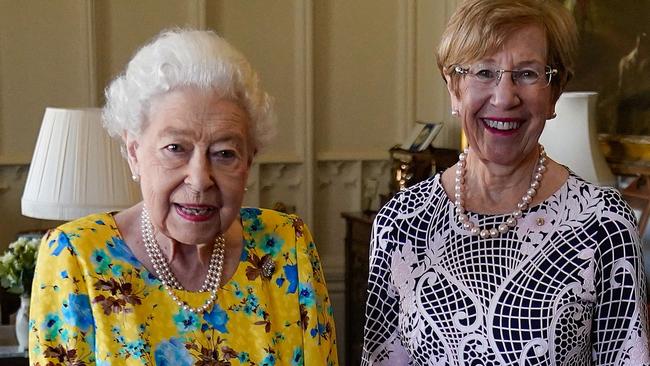
Before being sworn in as NSW Governor, Her Excellency had a distinguished legal career; in 1993 she was the first woman to become a Federal Court judge in Australia. In 1996, she was the first woman appointed to the NSW Court of Appeal and then was the first woman to be named its president.
Throughout it all, she has also been an advocate for human rights and a mentor, particularly to younger women in the legal profession. Although the way she tells it you may be mistaken for believing her path came about (at least in part) as a result of the innocent optimism of youth.
“I went to the Bar very young … I was still 23, hadn’t quite turned 24. I think the great value of that was that I had no fear,” she says with a laugh. “I only had myself to answer for. So, when I said ‘I had no fear’, the only fear you have is of failure. I just had this very pragmatic approach of, ‘if I didn’t make it, there’s always a Coles down the road and I could get a job there’, because I was only financially responsible for myself and, in many ways, there’s great freedom in that.”
Despite the path she was paving for herself and others, she still faced barriers from those who did not believe she belonged. “I was rejected off many floors because I was a female. But when I did secure chambers, there was still that feeling of ‘Well, I suppose we have to have this woman here,’ and I thought to myself, ‘I’m just going to keep turning up every day and doing my work’. And I had a view that at the end of the day, you had to do your work very well. But you should do that in any event: male or female.”
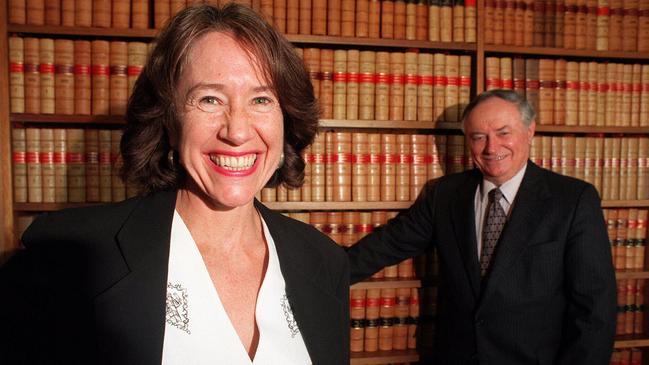
It was a sense of accomplishment that came from doing a good job that also helped to motivate her and, she believes, provide a positive workplace culture. It’s a topic, alongside leadership and health, that will take centre stage at next month’s Women’s Life Cycle Summit being hosted in Sydney by Menopause Alliance Australia and opened by Governor Beazley.
The conference will also examine the importance of recognising and supporting women’s health needs in the workplace. In September 2024, a Senate committee looking into issues associated with menopause and perimenopause recommended Australian workplaces provide more flexibility to women experiencing adverse effects of perimenopause and menopause. It also recommended the government consider implementing reproductive leave.
The recommendations have been welcomed by many who have experienced adverse effects that have made worklife difficult at certain times. However, some worry that introducing such leave could lead to greater discrimination in the workplace, especially towards older women.
Governor Beazley’s take on whether reproductive leave should be introduced: “Why not? As soon as you ask that question, ‘why not?’, it’s difficult to find answers as to why not. It’s very easy, I think, to block rather than to open up. And really, career promotion, work satisfaction, is all about opening up. Because the more you open up, the more you have the ability to have a productive and a happy workplace.”
She counts herself as being one of the lucky “25 per cent who had minimum problems with any reproductive issues: menopausal issues”, but would like to see women’s health, in all its forms, become less of a taboo topic.
“It’s a problem that should be as normal as brushing your teeth, and if it’s just treated that way, then there shouldn’t be any stigma in knowing that you might need at a particular time in your life, a particular day in your life, certain type of care, a certain amount of time out, and the more normal it is, the easier are the management issues around it.”
She would like discussions of reproductive health to be as common as it is to discuss breast cancer. “This all became a normal conversation, and in many ways the conversations around (breast cancer) began to shine a light on men’s health, and in particular prostate cancer and the need for men to take care of their health and to get their tests done as well. So it can be done, but it has to be normal.”
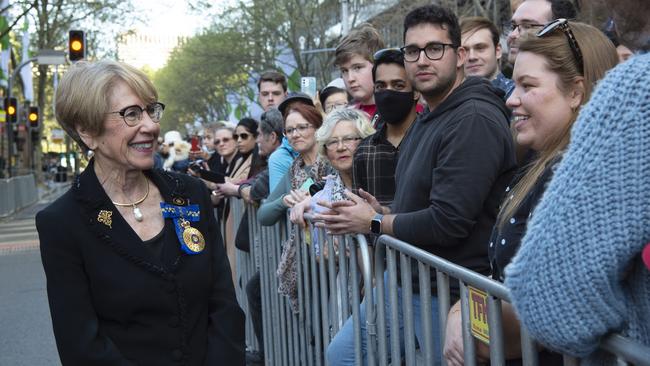
One other area she would like to see greater action around is domestic violence, describing it as her “greatest concern” in her role. She says it’s a recurring theme of discussion no matter where in the state she travels.
“It inspires me that women are doing something to help themselves in this situation but they go through so much,” she says. However, she worries not enough is being done to acknowledge the problem or to fix the problem of family violence.
“It can be done. But a lot of work needs to be done and a lot of messaging and a lot of understanding at individual levels of where the problems lay.”
Governor Margaret Beazley is speaking at the Women’s Life Cycle Summit.





To join the conversation, please log in. Don't have an account? Register
Join the conversation, you are commenting as Logout